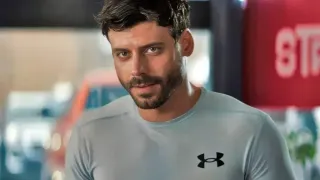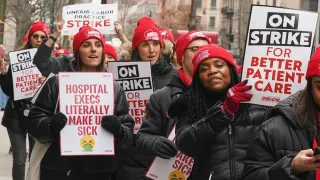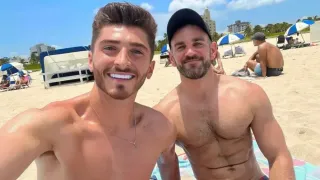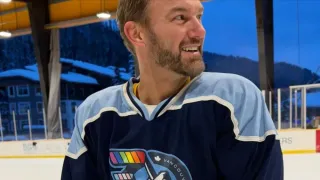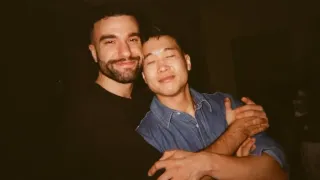June 30, 2015
Jack Carter, Brash Comic, Dies at 93
Jason St. Amand READ TIME: 3 MIN.
Jack Carter, whose brash, caustic comedy made him a star in early television and helped him sustain a career of more than a half-century in TV, nightclubs, movies and on stage, died of respiratory failure at his Beverly Hills, California, home, a family spokesman said.
Carter turned 93 just four days before he died Sunday, Jeff Sanderson said.
In 1948, when network television was beginning, Carter starred in a series of variety shows on ABC. In 1950, Pat Weaver, the visionary NBC programmer who fostered the "Today" and "Tonight" shows and other innovations, scheduled two hours of programming called "Saturday Night Revue."
"The Jack Carter Show," broadcast from Chicago, filled the first hour, and the comedian opened it with a standup routine that poked fun at the day's news, a device late-night comics still use. From there, the show moved on to music and comedy skits.
The second hour was taken up by "Your Show of Shows," starring Sid Caesar and Imogene Coca. Their sophisticated comedy became a sensation, and after "Saturday Night Revue's" first season, "The Jack Carter Show" was canceled. Although he would remain a popular guest star in television, Carter would never again headline his own network series.
"Maybe I come on too strong," he mused in 1963. "Directors and producers fear you when you come on strong. They're afraid they may not be able to control you."
The comedian, who had begun his career as a dramatic stage actor, also returned to the theater from time to time. He also performed regularly in nightclubs and appeared in films.
He made nearly three dozen movies, including Elvis Presley's "Viva Las Vegas," in which Carter played himself; "The Horizontal Lieutenant"; "The Extraordinary Seaman"; and "The Funny Farm."
Throughout his career, Carter remained the attacker, poking fun at members of the audience, disparaging politicians and celebrities.
"I'm one of the last entertainers who really works when he's on," he claimed in that 1963 interview. "I work to win the audience. I see these other guys, and they just recite. The less you do, the less you offend, of course, and that's what they want on TV."
Carter made numerous appearances on the shows of Ed Sullivan, Alan King and George Burns. He traded gags with Bob Hope on five Hope specials.
"The censors flagged you on everything," Carter recalled in the book "The Box: An Oral History of Television, 1920-1961." ''When you did Sullivan, you couldn't say bellybutton."
An adept ad-libber, he also became a regular visitor to the late-night talk shows.
He turned from comedy to drama in dozens of episodic series including "Dr. Kildare," ''Alfred Hitchcock Presents," ''Hawaii Five-O," ''Murder, She Wrote," ''Baywatch," ''Diagnosis Murder" and "Touched by an Angel."
His work as a director included Lucille Ball's CBS series "Here's Lucy" and plays, including "A Thousand Clowns," ''Silver Anniversary" and "Mouth-Trap."
Between TV work, Carter was active in theater. In 1956, he starred on Broadway with Sammy Davis Jr. in the musical "Mr. Wonderful." He toured in "Guys and Dolls," ''Born Yesterday," ''A Thousand Clowns," ''The Odd Couple" and "Oliver" (as Fagin).
Jack Chakrin was born in New York City in 1922. He joined a stock company after high school, hoping to become a dramatic actor, but his talent at amusing his fellow performers turned him toward comedy.
Drafted during World War II, he toured with the cast of Irving Berlin's show, "This Is the Army," and with other entertainment companies. Back in civilian life in 1947, he made his Broadway debut in "Call Me Mister," a musical about soldiers returning from war.
After a failed first marriage, Carter married actress Paula Stewart (the ex-wife of Burt Bacharach) in 1960, and they had a son, Michael. The marriage ended in 1970. Carter and wife Roxanne were married in 1971, divorced in 1977 and remarried in 1992.
Survivors include his wife, Roxanne; two sons, Michael Carter and Chase Carter; a daughter, Wendy Carter; and grandchildren Jake and Ava.
